Commissioners Bentzel and Sola Urge Congressional Leaders to Address Port Terminal Needs During COVID-19 Crisis
In letters to the Chairmen and Ranking Members of the House Committee on Transportation and Infrastructure and the Senate Committee on Commerce, Science, and Transportation, Commissioners Carl W. Bentzel and Louis E. Sola urged Congressional leaders to consider a means to help alleviate and bridge the financial gaps that could jeopardize continued healthy operation of the nation’s domestic marine terminal industry and maritime transportation system. The system of leasing marine terminals at U.S. ports is predicated on projected cargo volumes, and projections indicate that sustained demand reductions will make it financially difficult for terminals to sustain lease payments. However, the continued operation of our ports and terminals during this time is critical.
In their letter, the Commissioners also praised the essential work of marine terminal operators and longshore labor during this ongoing COVID-19 crisis. The men and women who work to deliver our essential needs such as the merchant marine, the longshoremen, railroad laborers and truckers, along with other transportation system service providers, are hard at work during the COVID-19 health crisis. We are indebted to their continued service, and they deserve the thanks of our nation. As the Commissioners indicated in their letter: “Approximately 90% of our overseas trade is transported by sea, including everything ranging from raw materials that support the country’s industrial base to essential medical equipment used by healthcare workers. The absence of the marine terminal operations trade, and the longshore workers working there, would effectively end the trade in goods and supplies necessary to combat COVID-19 at present, and in the future, to help restore economic prosperity.”
The text of the letter follows:
“We are writing today about the urgent need to address the ability of our ports to continue to fill their essential purpose of moving cargo into the United States during the current COVID-19 crisis. The Federal Maritime Commission (FMC) has been in continual communication with industry and labor on issues related to COVID-19 and challenges to maintain continuity of operations of our global supply chain. To this end, the FMC recently authorized Fact-Finding Investigation 29 to facilitate supply chain stakeholders’ discussions to identify commercial solutions to certain unresolved supply chain issues that interfere with the smooth operation of the U.S. international supply chain.
We have specific concerns about the abilities of the United States marine terminal operators to continue operating considering their lease and other contractual commitments to local port authorities. According to PIERS data, imports from Asia declined 17.5 percent over this past year and reports indicate that hundreds of container vessel voyages (blanked sailings) are scheduled to be cancelled. Analysts now believe that the container shipping industry could see losses of over 20%, approaching $23 billion in losses this year because of disruptions to the supply chain.
Port property is some of the most expensive per acre in the country and lease rates are supported by cargo volume, which is facing unprecedented headwinds due to disruptions in international trade caused by the COVID-19 outbreak. Most ports in the United States are “landlord ports” wherein a governing agency (typically a port authority) controls and leases port lands to commercial marine terminal operators under long-term agreements that are typically 30 or more years in duration.
The marine terminal operators provide the infrastructure, cargo handling equipment and labor for the import and export of ocean cargo on the terminals. The lease rates are usually set based on a number of factors but often correlate to cargo volume. In many of the largest ports, the leases are structured to include a fixed component based on minimum cargo volume expected at the terminal and a variable rate for any additional cargo that allows the port authority to share in revenue if cargo volume exceeds historical norms. If cargo volumes drop below the “breakpoint” of fixed rent, marine terminal operators are likely to incur substantial losses, which accelerate as the decrease in cargo volume becomes more severe or persists over long periods of time.
It is our understanding that marine terminal operators have tried to engage with their port authority landlords to discuss the financial impacts of drastic reductions of cargo on lease economics. To date, however, little progress has been made to help adjust lease payments considering market conditions.
Marine terminal operations and the longshore labor performing work at these terminals are classified as essential services. They continue to perform their jobs at this critical juncture in time, and under the immense stress of COVID-19. This industry deserves our honor for their continuing efforts.
Approximately 90% of our overseas trade are transported by sea, including everything ranging from raw materials that support the country’s industrial base to essential medical equipment used by healthcare workers. The absence of the marine terminal operations trade, and the longshore workers working there, would effectively end the trade in goods and supplies necessary to combat COVID-19 at present, and in the future, to help restore economic prosperity. It should be in the national interest to protect their continued existence and prosperity both to support the industrial base and to ensure that strategic assets continue to operate.
This problem requires a coordinated solution from the federal government and local port authorities that provides relief to marine terminal operators so that they can continue to provide the movement of cargo vital to our economy. We understand that there may be impediments that will preclude or limit the ability of terminals to use existing relief funds. As you move forward to legislative consideration of supplemental measures to address COVID-19, we are writing to urge you to consider a means to help alleviate and bridge the financial gaps that could jeopardize continued healthy operation of our domestic marine terminal industry and of our maritime transportation system.
Thank you for your leadership on the critical issues impacting maritime transportation and securement of our system of global supply. We remain committed to provide whatever assistance that we can to help ensure a reliable international ocean transportation supply system that supports the U.S. economy and protects the public.”
Carl W. Bentzel is a Commissioner with the U.S. Federal Maritime Commission. The thoughts and comments expressed here are his own and do not necessarily represent the position of the Commission.


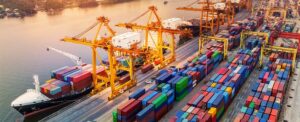
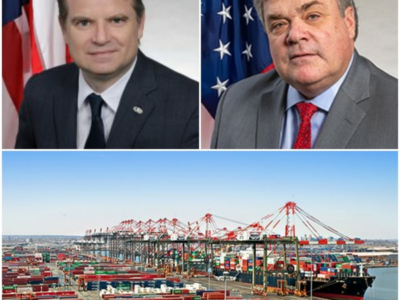
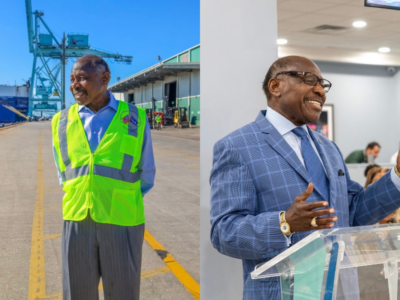
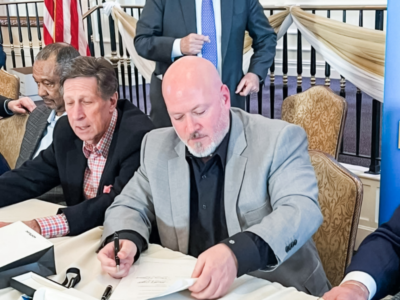
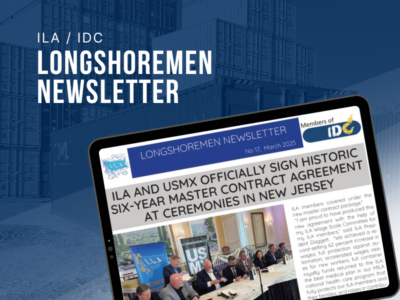
Leave a Reply